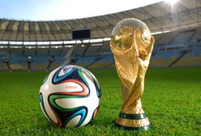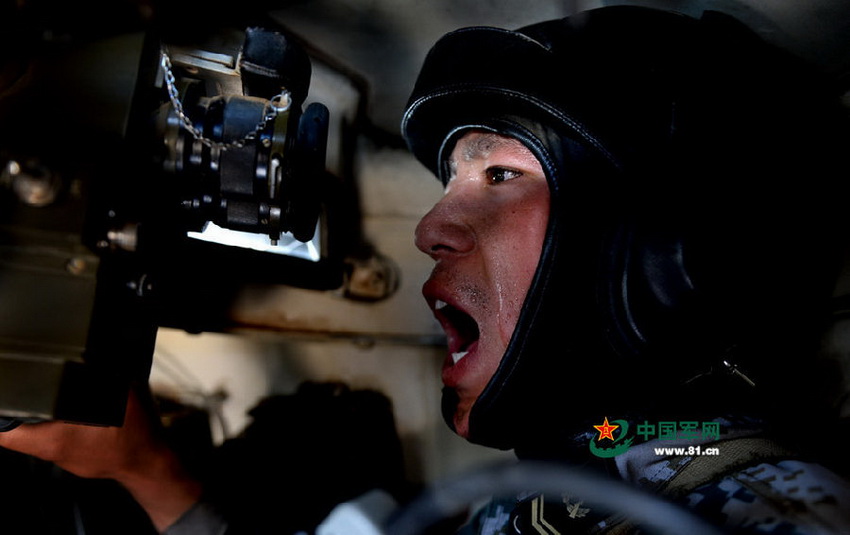 College-student-turned nun becomes famous on Internet
College-student-turned nun becomes famous on Internet
 Japanese airplanes tail Chinese warplane in China's ADIZ
Japanese airplanes tail Chinese warplane in China's ADIZ
 China applies for UNESCO listing of Nanjing documents
China applies for UNESCO listing of Nanjing documents
 Picturesque scenery in Hongcun Village
Picturesque scenery in Hongcun Village
 Japan's PM vows to resume commercial whale hunt
Japan's PM vows to resume commercial whale hunt
 Luoyang aims to become 'Chinese Culture City'
Luoyang aims to become 'Chinese Culture City'
 Century-old jade disc found confirms ancient legend
Century-old jade disc found confirms ancient legend
 A serious mind behind Chinese leader
A serious mind behind Chinese leader
 Panda Cubs to Predict 2014 World Cup Winners
Panda Cubs to Predict 2014 World Cup Winners
 China Southern Airlines flight attendants win titles in service contest
China Southern Airlines flight attendants win titles in service contest
Iran and six major states on Monday resume a new round of nuclear talks in Vienna, trying to work on the drafting of the final agreement.
Based on the interim deal reached in Geneva last November, Iran and six major powers including Britain, China, France, Russia, the United States and Germany are trying to find a final solution for the decade-old dispute over Iran's nuclear issue by July 20.
After meeting with EU foreign policy chief Catherine Ashton Monday in the capital city of Austria, Iran's chief negotiator and Foreign Minister Mohammad Javad Zarif told reporters that he hopes the talks can "get ready for moving forward."
He also told Iranian media that Iran and the six major states will review nuclear-related issues once again in their plenary meeting on Tuesday.
Iran had held bilateral meetings with France, Russia and Germany before the talks in Vienna. Iranian officials had told Iranian media that these meetings were important for the Vienna talks.
The most significant gap between Iran and the West is about Iran's nuclear fuel production capacity, which western states fear that Iran could make a nuclear bomb if Tehran's nuclear production capacity is not restricted.
Last week, French Foreign Minister Laurent Fabius told French media that there was deep division over the number of centrifuges for enriching uranium that Iran will be able to hold on to under an agreement.
"We say that there can be a few hundred centrifuges, but the Iranians want hundreds of thousands, so we're not in the same framework," Fabius said.
But a senior U.S. official said "we understand each other better and we see areas where we can close the gaps," noting that all sides are trying to engage in the talks in a positive way of thinking.
U.S. Deputy Secretary of State Bill Burns would be among the U.S. officials taking part in the fifth round of Iranian nuclear talks.
 College girls take stylish photos to help enrollment
College girls take stylish photos to help enrollment Top 10 Chinese products scoring World Cup goal
Top 10 Chinese products scoring World Cup goal PLA units hone their tank combat skills
PLA units hone their tank combat skills Attendants shine at Xinjiang-Lanzhou high-speed rail
Attendants shine at Xinjiang-Lanzhou high-speed rail Jiuzhai Valley - fairyland of the world
Jiuzhai Valley - fairyland of the world Can't take eyes off national teams in World Cup
Can't take eyes off national teams in World Cup Beijing strips off to celebrate summer
Beijing strips off to celebrate summer
 Traditional wedding ceremony of China's Buyi ethnic group
Traditional wedding ceremony of China's Buyi ethnic group Art school students present works in Nanjing
Art school students present works in Nanjing Top 20 hottest women in the world in 2014
Top 20 hottest women in the world in 2014  China's top 10 representative architectures
China's top 10 representative architectures Cute animals' leisure summer in zoo
Cute animals' leisure summer in zoo Exhibition of the Buddha held in Tibet
Exhibition of the Buddha held in Tibet Grandpa Kang takes Gaokao for 14th time
Grandpa Kang takes Gaokao for 14th time Incredible animal migration in Xinjiang
Incredible animal migration in Xinjiang Day|Week|Month